All songs produced by John Seals at Sunland Recording Studios (2021). Project Preservation was made possible with the generous support of the Alabama State Council on the Arts. Executive production by the Wiregrass Blues Society.
1. Alabama is the Place to Be
(by Leon Atkins – AKA Lil’ Jimmy Reed)
Today the song continues to win over audiences worldwide due to Lil’ Jimmy Reed’s consistent touring efforts, especially in Sweden, where he has garnered a large, loyal following. Lil’ Jimmy Reed’s strong performance on vocals, guitar, and harmonica as well as the solid backing of the Project Preservation Band draws the listener in and the memorable lyrics make this tune particularly catchy.
Featured Artist:
Lil’ Jimmy Reed (Lead Vocals, Guitar, Harmonica)
Project Preservation Band:
David Adkins (Piano)
Tyler Brockett (Guitar)
Marcus Hart (Bass)
John Seals (Drums)
Song History:
“Alabama’s the Place to Be” was written by Leon Atkins (AKA Lil’ Jimmy Reed) and was originally released on his 1996 album School’s Out. The song has been a crowd favorite at Lil’ Jimmy Reed’s concerts for years as it highlights the importance of place and celebrates our collective identity as Alabamians. It also emphasizes Alabama’s rich contribution to American blues music. The lyrical reference to Birmingham, Alabama as central to blues is based on historical fact.The documentary film, Alabama Black Belt Blues, demonstrates how Birmingham was home to a thriving blues scene as evidenced by its plethora of black juke joints like Boligee, Panola and Union and the Red Wolf Lounge in the early 1900s.
Lyrics:
If you going out of town
Alabama – the place to be
If you going out of town, baby
Alabama – the place to be
They got so much blues going on
It will knock on your feet
If you go to New Orleans
You hear jazz all over town
If you go to New Orleans, baby
You hear jazz all over town
If you come to Birmingham – the blues won’t let you down
Harmonica Solo
2. St. James Infirmary
(Public Domain Song – original author unknown, yet song’s title was registered to Irving Mills under the pseudonym Joe Primrose)
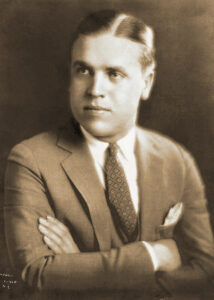
The song has been recorded by many famous artists such as: Louis Armstrong, Josh White, Lou Rawls, Joe Crocker, Arlo Guthrie, and Rickie Lee Jones. The Project Preservation’s lyrical and musical version of “St. James Infirmary” draws particular inspiration from the legendary 1996 live performance of the song by Dr. John and Eric Clapton. Marla Drake’s sultry and soulful performance is the perfect overlay to the latin jazz-infused style of the Project Preservation band, featuring soaring guitar solos and a tight horn section.
Featured Artist:
Marla Drake (Lead Vocals)
Project Preservation Band:
David Adkins (Guitar, Organ, Piano)
Melvin Burke (Trumpet)
Kevin Scott (Bass)
John Seals (Drums)
Tony Staffiero (Sax, Baritone Sax)
Song History:
“St. James Infirmary” is an American jazz/blues song whose original composer remains undetermined. The song’s roots may be traced back in multiple directions, yet, two of the most documented are to an American folk song “Gambler’s Blues” as well as to an 18th century English broadside song entitled “The Unfortunate Lad/Rake.” “Gambler’s Blues” was first published in 1925 by Carl Moore and Phil Baxter and in 1927 Carl Sandburg published two versions of the song in The American Songbag. However, the specific title of “St. James Infirmary Blues” is credited to the songwriter Joe Primrose (a pseudonym used by the American jazz composer Irving Mills) who first registered the title in 1929 and won a U.S. Supreme Court Case demonstrating his rights to that title of the song. “The Unfortunate Lad/Rake” was about a soldier who spends his money on prostitutes and then subsequently dies of venereal disease. However, some of the famous recorded versions of the song do not directly correlate with that original English folk song in lyrical content or musical structure.
Lyrics:
I went down to St. James Infirmary
I saw my old man there
He was stretched on a long white table
With a D.O.A. sticker in his hair
Let him go, let him go, let him go, God bless him
Wherever he may be
He can search this whole wide world over, yeah
But he’ll never find another woman like me
He said when I go
Lay a $10 gold piece on my eyelids
Lord knows – I want some loaded craps in my shoes
I want all those rough-neck characters off Bourbon Street
I wanna hear that David Atkins play some dirty blues
Guitar Solo
It was a cold, cold, cold, black night last December
12 hustlers on Britannia Street
12 cold-blooded hustlers dressed in leather
Don’t you know they were moaning outside St. James Infirmary
I went down, went down to St. James Infirmary
I saw my old man there
He could’ve searched the whole wide world over
And never never
Find another woman like me
And he never find another woman like me
3. Catfish Blues
(Public Domain Song – original author unknown but first popularized by Mississippi Delta bluesman, Robert Petway)
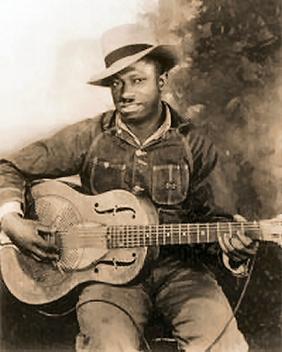
Peggy Jenkins and the Project Preservation Band give this song a particularly swampy feel, featuring superb guitar work by David Adkins and authentic blues harmonica by Woolvin James. Peggy Jenkins’ powerful, bellowing vocals drive the song home with a dynamic force that enlivens the lyrics’ storytelling.
Featured Artist:
Peggy Jenkins (Lead Vocals)
Project Preservation Band:
David Adkins (Guitar, Keys)
Woolvin James (Harmonica)
Kevin Scott (Bass)
John Seals (Drums)
Song History:
The origin of “Catfish Blues” is unknown, but it was first popularized by Robert Petway, a Mississippi Delta Bluesman in 1941. The lyric about wishing to be a catfish can also be traced to a 1928 recording (American Blues Music Scene). The song has been performed and recorded numerous times over the past eighty years, most famously by Muddy Waters who changed the title to “Rollin’ Stone.” This title supposedly inspired a young English band to name themselves the Rolling Stones as well as the naming of the influential music magazine, Rolling Stone. Jimi Hendrix also put his own spin on “Catfish Blues” riffs, creating “Voodoo Chile” which was featured in his legendary 1969 Woodstock Festival performance and later recorded as “Voodoo Child.” Warren Haynes with Gov’t Mule also performed the song with a hard-rock edge and squealing slide guitar.
Lyrics:
Well I wish, wish I was a catfish
Swimming in the deep blue sea
I have all – all you handsome fellas
Fishing after me, fishing after me
Fishing after me, yeah
When I went down to my boyfriend’s house
And I sat down, Lord on his front steps
He said, “Come on in, my sweet, sweet pea.
My wife just now – you know she just now left.
Oh no, no, she just now left. Yes, she did now.”
Harmonica Solo
Well I did not know – two trains running, yeah
But there is not one that’s going my way
You know there’s one train running at midnight, yeah
The one leaves just for a day
Said the other one leaves just for a day
Just for a day yeah, for a day
Well I wish, wish I was was a catfish
Swimming in the deep blues sea
I have all of you handsome fellas
Fishing after me, said fishing after me
Fishing after me, yeah
Yeah, said fishing after me
They’s fishing after me, boy
4. Fool for you Baby
(by Leon Atkins – AKA Lil’ Jimmy Reed)
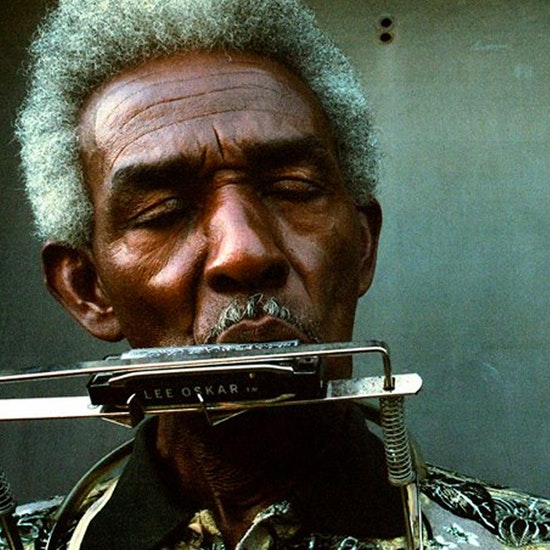
The song highlights humorous and playful lyrics to show undying devotion on the part of the singer even when expectations of the relationship falter. Lil’ Jimmy Reed’s melodic harmonica and driving rhythm are also complemented by the Project Preservation’s shuffle style which gives this song an irresistible swing, encouraging the audience to dance.
Featured Artist:
Lil’ Jimmy Reed (Lead Vocals, Guitar, Harmonica)
Project Preservation Band:
David Adkins (Organ, Piano)
Greg Davis (Guitar)
Marcus Hart (Bass)
John Seals (Drums)
Song History:
“Fool for you Baby” was written by Leon Atkins (AKA Lil’ Jimmy Reed) and the inspiration for the song’s composition came from Jean Atkins, his wife. They both agreed that it was written to let every listener know that a vow and a commitment should represent a sincere union. They both firmly believe that Lil’ Jimmy’s career features many upbeat songs like “Fool For You Baby” that demonstrate that the blues does not have to be a sad occasion. This use of the genre to not only focus on hardship but to also celebrate love harkens back to early soul and rhythm and blues era of the 1950s and early 1960s, that extolls the virtue of finding love and keeping it. The song was originally released on Lil Jimmy Reed’s 1996 album School’s Out.
Lyrics:
Harmonica Solo
I’m a fool for you baby
If you want to know the truth
I’m a fool for you baby
If you want to know the truth
You can put that dull knife down
Please don’t cut me loose
Bought you a new cadillac
It was just a gift
You passed me on the street, baby
Wouldn’t even give me a lift
Fool for you baby
If you want to know the truth
You can put that dull knife down
Please don’t cut me loose
I bought you a brand new wig
You had no hat on
Give me back my wig baby
Let your hair go bald
Fool for your baby
If you want to know the truth
You can put that dull knife down
Please don’t cut me loose
Harmonica Solo
Bought you a new cadillac
It was just a gift
You passed me on the street, baby
Wouldn’t even give a lift
Fool for your baby
If you want to know the truth
You can put that dull knife down
Please don’t cut me loose
5. Ain’t Nobody’s Business
(Public Domain Song – by Porter Grainger and Everett Robbins)
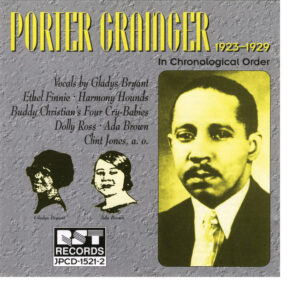
“Ain’t Nobody’s Business” was recorded by many famous artists including Bessie Smith, Billie Holliday, Sarah Martin (accompanied by Fats Waller on piano), Alberta Hunter, Frank Stokes, and Jimmy Witherspoon. Marla Drake’s cheeky vocal performance draws upon the original devil-may-care lyrical content (i.e., “Tain’t Nobody’s Biz-ness”) and the soulful back ups of Peggy Jenkins. Project Preservation band’s slow jazz-inspired blues, features Paul Hornsby’s honky-tonk stylings on the piano.
Featured Artist:
Marla Drake (Lead Vocals)
Project Preservation Band:
David Adkins (Guitar, Organ)
Paul Hornsby (Piano)
Peggy Jenkins (Backing Vocals)
Kevin Scott (Bass)
John Seals (Drums)
Tony Staffiero (Sax, Baritone Sax)
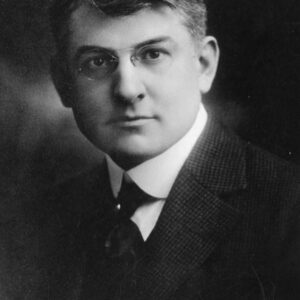
Songs History:
“Ain’t Nobody’s Business” (originally recorded as “T’aint Nobody’s Biz-ness If I Do”) was published by songwriters/pianists Porter Grainger and Everett Robbins in 1922 when the song was first released by Anna Meyers and the Original Memphis Five. Porter Grainger played in Mamie Smith and the Jazz Hounds and also worked as the pianist for the famous blues singer, Bessie Smith, from 1924-1928, as well as many other famous early blues artists such as: Fannie May Goosby, Viola McCoy, Clara Smith, and Victoria Spivey. Everett Robbins was trained at the American Conservatory of Music in Chicago and also worked for Mamie Smith and the Jazz Hounds, where he may have initially met Grainger. He also was a bandleader in his own right with Everett Robbins and the Jazz Screamers featuring trumpet player, Bob Shoffner.
Lyrics:
If I should take a notion
To go jump into the ocean
‘T’aint nobody’s business if I do – ah no
If I go to church every Sunday
Then decide to shimmy down all day Monday,
T’aint nobody’s business if I do, if I do!
If my man ain’t got no money
And I say, “Take all of mine, honey”
T’aint nobody’s business if I do, if I do!
See if I give him my last nickel
And it leaves me in a pickle
‘T’aint nobody’s business if I do, if I do!
Play that thing!
Piano Solo
There ain’t nothin’ I can do
Or nothin’ I can say
That your folks don’t criticise me for
If what I’m going to do
Is just what I
Just what I want to anyway
And I don’t care if you all despise me, no-ooooo!
Ain’t nobody’s
Ain’t nobody’s business
Said if I do, yeah
Ain’t nobody’s business if I do
6. I Am a Woman
(Public Domain Song – Lyrics by Koko Taylor and original music by Bo Diddley)
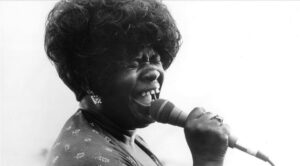
Peggy Jenkins’ smoking and sexy performance commands the listener’s attention with a force that is reminiscent of Koko Taylor’s first recording, yet, arguably even more powerful than that original rendition. The Project Preservation band lays down this track with sizzling electric blues guitar riffs and the quintessential blues harmonica playing of Woolvin James.
Featured Artist:
Peggy Jenkins (Lead Vocals)
Project Preservation Band:
David Adkins (Guitar, Organ)
Greg Davis (Guitar)
Woolvin James (Harmonica)
Kevin Scott (Bass)
John Seals (Drums)

Song History:
“I’m a Woman” uses the original blues music from Bo Diddley’s 1955 recording “I’m a Man” which the powerful female blues singer Koko Taylor lyrically adapted for her 1978 album release Earthshaker. Bo Diddley was a transformational blues singer, songwriter, guitarist, and music producer who helped spread blues’ influence into the burgeoning rock n’ roll scene of the 1950s and 1960s. For his contributions, he was inducted into the Rock n’ Roll Hall of Fame in 1987; the Blues Hall of Fame in 2003; and the Rhythm and Blues Hall of Fame in 2017. He also was honored with a Grammy Lifetime Achievement Award in 1998. Koko Taylor was widely known as “Queen of the Blues” for her powerful, gritty, soulful vocals and had an illustrious and long career winning numerous awards (e.g., Grammy for “Best Traditional Blues Album” in 1995; Howlin’ Wolf Award in 1996; 1997 induction into the Blues Hall of Fame; Blues Foundation’s Lifetime Achievement Award in 1999; NEA National Heritage Fellowship in 2004; and many Blues Music Awards throughout the years in multiple categories).
Lyrics:
Oh yeah, oh yeah
Everything, everything, everything going to be alright
Harmonica Solo
When I was a little girl
Only twelve years old
I couldn’t do nothing
To save my doggone soul
Mama told me
The day I was born
She said “Sing the Blues, child.
Sing it from now on.”
I’m a woman
Oh yeah
I’m a woman
I’m a ball of fire
I’m a woman
I can make love to a crocodile
I’m a woman
I can sing the blues
I’m a woman
I can take you all to the blues
W-O-M-A-N
Oh yeah
That means I’m grown
I’m a woman
I’m a rushing wind
I’m a woman
I can cut stone with a pin
I’m a woman
I’m a lovemaker
I’m a woman
You know I’m an earthshaker
Yeah – oh yeah
Harmonica Solo
I’m a woman
I’m a mighty rushing wind
I’m a woman
I can cut stone with a pin
I’m a woman
I know my stuff
I’m a woman
I ain’t never had enough
I’m going down yonder
Behind the sun
Going to do something for ya
That ain’t never been done
Go back the lighting
With the palm of my hand
Going to shake hands with the devil
Make him crawl in the sand
‘Cause I’m a woman
Oh yeah
I’m a woman
I’m a ball of fire
I’m a woman
I can make love to a crocodile
I’m a real woman
I’m a love maker
I’m a woman
You know – I’m an earthshaker, yeah!
I’m a woman
Yeah – I’m a woman
Yeah – a real woman
7. School’s Out
(Written by Leon Atkins – AKA Lil’ Jimmy Reed)

Lil’ Jimmy Reed draws upon his characteristically playful delivery of the lyrics which combines well with his slinky, finger snapping guitar rhythm as well as his expressive harmonica solo. The Project Preservation band brings a laid back groove to this song which is complemented by funky rhythm guitar and David Atkins’ ragtime piano playing.
Featured Artist:
Lil’ Jimmy Reed (Lead Vocals, Guitar, Harmonica)
Project Preservation Band:
David Adkins ( Piano)
Tyler Brockett (Guitar)
Marcus Hart (Bass)
John Seals (Drums)
Song History:
“School’s Out” was written by Leon Atkins (AKA Lil’ Jimmy Reed) and was released on his 1996 album of the same name. Like many of the best songs in music history, it was apparently written in just ten minutes. Lil’ Jimmy Reed explains that as he was finishing up the album in Birmingham, AL, the producers wanted one more original song. Lil’ Jimmy Reed confidently said that he could write a song quickly. He then left the control room and went to another part of the studio to write. He happened to gaze out the window and saw school children getting off a school bus and that gave him the original idea of “School’s Out”. He utilized various themes around getting out of school with references to summertime vacations and all the busses in the shop. Yet, always the paramour, Lil’ Jimmy Reed added lines like: “When I start loving baby, Honey – Lil’ Reed can’t stop.”
Lyrics:
School’s out baby
Where you going to spend your summertime?
School’s out baby
Where you going to spend your summertime?
You should be with Lil’ Reed baby
Tell him what’s on your mind
Take us on vacation baby
All the buses is in the shop
Take us on vacation baby
Busses in the shop
When I start loving baby
Lil’ Reed can’t stop
Piano Solo
Take us on vacation baby
All the busses in the shop
Take us on vacation baby
All the busses in the shop
When I start loving baby
Honey – Lil’ Reed can’t stop
School’s out baby
Where you going to spend your summertime?
School’s out baby
Where you going to spend your summertime?
You should be with Lil’ Reed baby
Tell him what’s on your mind
Harmonica Solo
8. Sitting on Top of the World
(Public Domain Song – by Walter Vinson and Lonnie Chatmon)
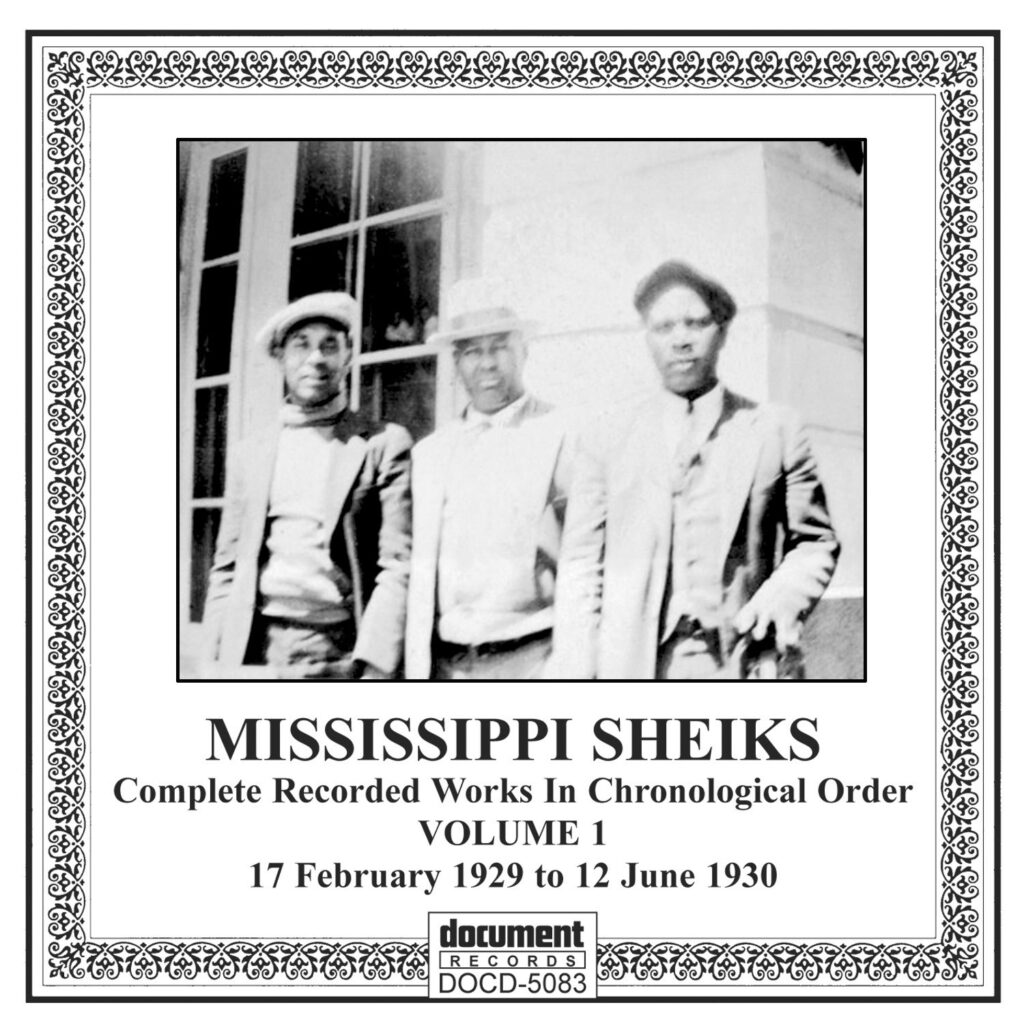
Marla Drake’s breathtaking performance on “Sitting on Top of the World” embodies the vulnerability expressed in the lyrics through her intuitive, tender, yet powerful phrasing. The Project Preservation band lays a lush soundscape for Drake’s performance, incorporating traditional blues and jazz.
Featured Artist:
Marla Drake (Lead Vocals)
Project Preservation Band:
David Adkins (Guitar, Organ, and Piano)
Marcus Hart (Bass)
John Seals (Drums)
Tony Staffiero (Alto, Baritone and Tenor Sax)
Song History:
“Sitting on Top of the World” is a country blues tune that was written by Walter Vinson and Lonnie Chatmon, core members of the African American string band, the Mississippi Sheiks, who first recorded the song in 1930. It was later recorded by artists spanning various genres, from country to blues to rock such as: Milton Brown, Bob Willis, Bob Monroe, Doc Watson, Howlin’ Wolf, the Grateful Dead, Cream, and Jack White. The lyrics portray long-suffering patience in the face of difficult loss, capturing the quintessential spirit of longing in early American blues music. Given the song’s long life and cultural significance, it was inducted into the Grammy Hall of Fame in 2008 and was also chosen by the National Recording Registry of the Library of Congress in 2017 as being “culturally, historically, or artistically significant” and an aural treasure “worthy of preservation” (National Recording Registry Reaches 500).
Lyrics:
One winter day, he went away
He’s gone and left me, and
He’s gone to stay
My baby’s gone and I won’t worry
‘Cause I’m sitting on top of the world
(I said) If you don’t like my peaches, don’t you shake my tree
Get out of my orchard, let my peaches be
So now he’s gone but I don’t worry
Lord – I’m sittin on top of the world
Close the door behind you
(SOLO)
He called me on the phone, from up in Chicago
He said he was coming back & “baby, oh I need you so”
But now he’s gone, but I don’t worry
Lord I’m sittin on top of the world
One winter day, he went away
He’s gone and left me, and
He’s gone to stay
My baby’s gone and I won’t worry
‘Cause I’m sitting on top of the world
Was in the cold, one winter day
My sweetheart left me; Lord he went away
And now he’s gone, but I don’t worry
Lord I’m sittin on top of the world
9. Rollin’ & Tumblin’
(Public Domain Song – original author unknown but first recorded by Hambone Willie Newbern)
Peggy Jenkins’ brings a searing rock n’ roll energy to her performance that stays true to the song’s Delta blues roots. The Project Preservation band draws inspiration from the performance on Live Cream, while making this song their own. Greg Davis is featured on lap steel guitar.
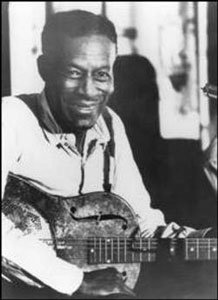
Featured Artist:
Peggy Jenkins (Lead Vocals)
Project Preservation Band:
David Atkins (Guitar)
Greg Davis (Guitar, Lap Steel Guitar)
Marcus Hart (Bass)
John Seals (Drums)
Song History:
“Rollin’ and Tumblin’” was first recorded by singer/guitarist Hambone Willie Newbern in 1929 for Okeh Records in Atlanta, GA, however, the original composer is unknown. It was released before the appearance of “race records,” but quickly rose in stature and today is considered a great Delta Blues standard. It has been covered by scores of blues artists over the years, including Robert Johnson and Muddy Waters. The song also became widely adopted by rock musicians, most famously interpreted by Cream on their debut album, Fresh Cream as well as on their Live Cream album that was released in 1970. “Rollin’ and Tumblin’” was also featured on the Yardbirds live album, Live Yardbirds: Featuring Jimmy Page (1971), which showcases a legendary performance by Page on slide guitar.
Lyrics:
Well – I rolled and I tumbled
Cried the whole night long
Well – I rolled and tumbled
Cried the whole night long
Well – I woke up this morning
Didn’t know right from wrong
Well – I told my baby before I left that town
Well- I told my baby before I left that town – yes I did now
Well – you don’t let nobody tear my barrelhouse down
( Wah! Wooheee! Yes sir! Hmmm!)
Well -if the river was whiskey
I was a diving duck
Well – if the river was whiskey
I was a diving duck
Well – I went down to the bottom
Never will I come up
I had religion that bad old thing instead (Yes sir!)
I had religion that bad old thing instead
Well – whiskey and women – would not let me pray
(Yes – sir! Whoohee!)
It would not let me pray – (Owww!)
10. In my Prime and In my Youth
(by Leon Atkins – AKA Lil’ Jimmy Reed)
Lil’ Jimmy Reed’s up-beat and danceable guitar rhythms, punctuated by his catchy harmonica melodies, can raise any audience to their feet. His wry delivery of the lyrics add to the song’s overall charm. The Project Preservation band provides the perfect blues shuffle backing to the song, complete with organ and guitar flourishes.

Featured Artist:
Lil’ Jimmy Reed (Lead Vocals, Guitar, Harmonica)
Project Preservation Band:
David Atkins (Organ, Piano)
Tyler Brockett (Guitar)
Marcus Hart (Bass)
John Seals (Drums)
Song History:
“In My Prime and in My Youth” was written by Leon Atkins (AKA Lil’ Jimmy Reed) and the seed for the song came from early discussions with Jean Atkins, his wife, when they first got engaged. As Jean Atkins tells the story of the song’s composition, she and Lil’ Jimmy Reed were discussing what they wanted out of a partner as they began to consider the next step of tying the knot. They wanted to ensure that they were on the same page before embarking on their marital journey. In classic Lil’ Jimmy Reed style, the song’s lyrics reveal a playful, flirtatious side in reflecting on further commitment. Yet, both he and his wife agreed that it is vital for both partners to have the same love on their minds. As the lyrics state, “if you don’t do it right, then it ain’t no use.”
Lyrics:
I got love on my mind baby
Hope you got love on your mind too
I got love on my mind baby
Hope you got love on your mind too
If you don’t do it right
Then it ain’t no use
I’ve been in and out of love
In my prime and in my youth
I’ve been in and out of love baby
In my prime and in my youth
If you don’t do it right
Then it ain’t no use
Harmonica Solo
Organ or key solo
(Spoken) That’s what you call Alabama blues
I’ve been in and out of love
In my prime and in my youth
I’ve been in and out of love baby
In my prime and in my youth
If you don’t do it right
Then it ain’t no use
I got love on my mind baby
Hope you got love on your mind too
I got love on my mind baby
Hope you got love on your mind too
If you don’t do it right
Then it ain’t no use
Harmonica Solo
Organ or key Solo
(Look out Mobile, Birmingham, Atlanta!)
I’ve been in and out of love
In my prime and in my youth
I’ve been in and out of love baby
In my prime and in my youth
If you don’t do it right
Then it ain’t no use
Harmonica Solo
11. Rock me Baby
(Public Domain Song – by Melvin “Lil’ Son Jackson” – original title “Rockin’ and Rollin’”
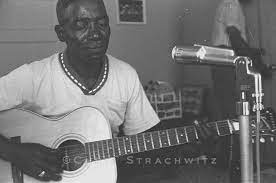
Marla Drake’s masterful vocal interpretation of the lyrics, with their direct commands to be rocked and rolled by one’s lover, adds to the song’s urgent sexuality and directness. The Project Preservation Band’s slow-plodding blues provides an inspired backdrop, complemented by tasteful organ and electric blues guitar riffs.
Featured Artist:
Marla Drake (Lead Vocals)
Project Preservation Band:
David Atkins (Organ, Piano)
Greg Davis (Guitar)
Marcus Hart (Bass)
John Seals (Drums)
Song History:
“Rock Me Baby” was written by Melvin “Lil’ Son” Jackson in 1951, and his original title was “Rockin’ and Rollin,’” inspired by older blues songs. Tracing back to blues music from the 1920s, there were plentiful references to rock, roll, and baby in a multitude of songs. In a famous 1956 recording of the song, Muddy Waters changed the title to “Rock Me” and added some lines from his 1951 song, “All Night Long.” B.B. King, in his 1964 release of the song, also altered the title to its current “Rock Me Baby.” Both Muddy Waters and B.B. King are credited with making the song famous. In fact, B.B. King’s rendition became a crossover hit – entering the Billboard Hot 100 charts at #34 in 1964. B.B. King also revitalized the song when he re-recorded it for the 1997 album, Deuces Wild, with Eric Clapton, capturing even younger audiences with their dazzling electric blues guitar work.
Lyrics:
Rock me baby, rock me all night long
I said I want you to
Rock me baby, rock me all night long
I want you to rock me, like my back ain’t got no bones
Roll me daddy, roll me over slow
Mmm, I want you to
Roll me daddy, roll me over slow
I want you to roll me, ’till I want no more
Then I told him
When you see me coming,
Go get your rockin’ chair, well, well, well
When you see me coming, go get your rockin’ chair
I want you to rock me, rock me far away from here
*Ooh, play the Song
Guitar Solo
Rock me baby, rock me all night long
I said I want you to
Rock me baby, rock me all night long
I want you to rock me, like my back ain’t got no bones, ooh
Roll me daddy, roll me over slow
Mmm, I want you to
Roll me daddy, roll me over slow
I want you to roll me, ’til I want no more, ooh
I want you to roll me, ‘til I want no more
12. Trouble in my Mind
(Public Domain Song – by Richard M. Jones)
Peggy Jenkins’ passionate vocal delivery of the song’s lyrics demonstrates that the blues genre can also be aspirational – expressing hopes for a brighter future even amongst life’s lowest moments. The Project Preservation band supports Jenkin’s performance with a slow vaudeville style blues, highlighting Paul Hornsby’s haunting piano solo and Anthony Staffiero’s moving saxophone parts.
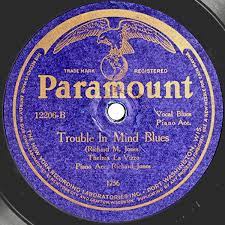
Featured Artist:
Peggy Jenkins (Lead Vocals)
Project Preservation Band:
David Adkins (Guitar, Organ)
Paul Hornsby (Piano)
Kevin Scott (Bass)
John Seals (Drums)
Tony Staffiero (Sax, Baritone Sax)
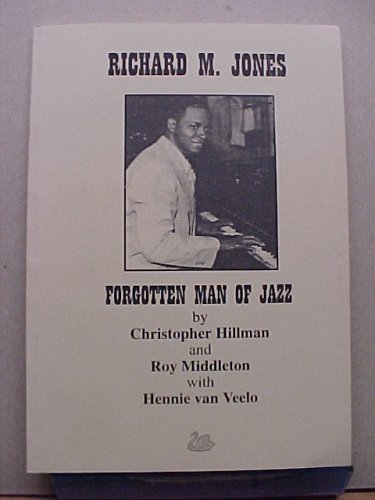
Song History:
“Trouble in Mind” was written by jazz pianist Richard M. Jones and first recorded by singer Thelma La Vizzo in 1924, with Jones accompanying her on piano. However, the song has been traced to two African American spirituals from the 1800s before Jones’ penning of this early blues standard: “I’m, a-Trouble in De Mind,” published in the Slave Songs of the United States (1867) and “I’m Troubled in Mind,” cited in The Story of the (Fish University) Jubilee Singers and Their Songs (1880). In 1926, the song gained more popular appeal when it was recorded by Bertha “Chippie” Hill, with Louie Armstrong on trumpet. The song has subsequently been recorded by famous artists such as Dinah Washington, Lightnin’ Hopkins, and Nina Simone. The Blues Foundation inducted Hill’s version of “Trouble in Mind” into the Blues Hall of Fame as a “Classic Blues Recording” in 2020.
Lyrics:
Ohh Yeah
Trouble in mind
I’m a little blue
Bet you I won’t be blue always
‘Cause that sun is going to shine
On Peggy’s backdoor step some day
I’m going to lay my head
On somebody’s lonesome railroad line
Let that old midnight special
Ease my troubled mind
Will they tell me that old graveyard
Is a mighty lonesome place
Piano Solo
Goodbye baby, may God bless you
And may He bless ol’ Killer a little bit too
Oh, don’t meet you over yonder, baby
When they throw that darn right over you
Guitar Solo
Goodbye baby, may God bless you
And may He bless ol’ Killer a little bit too
Oh, don’t meet you over yonder, baby
When they throw that darn right over you
Trouble in mind, I’m a little blue
Bet you I won’t be blue always
‘Cause that sun’s gonna shine
On my back door step
Some lowdown, some lonesome, mother humpin’ day


